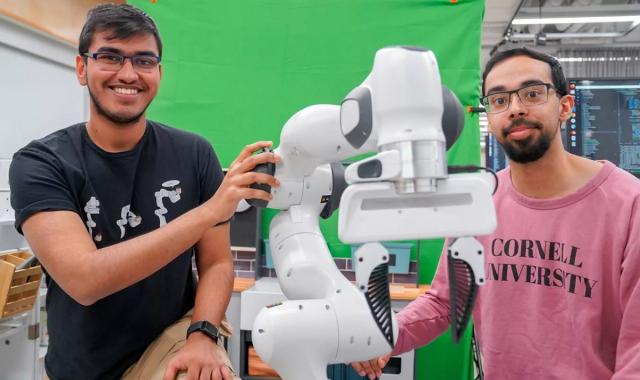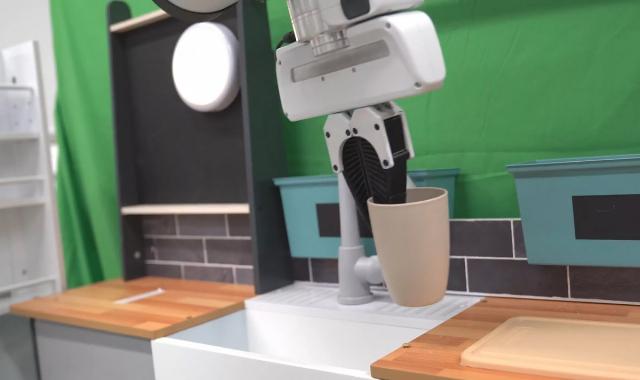
RhyME
Researchers from Cornell University have received support from the U.S. Office of Naval Research and the National Science Foundation to develop the RhyME project. This is a special version of artificial intelligence, which is designed to train robotic systems. Now it demonstrates a 50% increase in the speed and efficiency of robots mastering new knowledge, and in the future this indicator may grow thousands of times.
The main problem in training robots is that they are unable to analyze the changing environment and, as a result, cannot flexibly adapt to new conditions. More precisely, it is possible, but it requires an exorbitantly large amount of memory and computing power, and therefore makes utilitarian robots unprofitable. As a result, the most efficient systems are industrial robots that operate under strictly defined conditions. And if such a robot, for example, drops a tool or a part on the conveyor is turned the wrong way, it will be helpless.

RhyME
RhyME partially compensates for this shortcoming. This AI works with a memory bank, which contains many examples of actions with different objects and in different conditions. He takes a short course of study, such as how to carve a spoon out of a piece of wood. And then he independently builds an algorithm of work, selecting certain operations from the data bank – how to fix the workpiece, which tool to choose, how to use it. On average, a RhyME-controlled system takes 30 minutes to learn a new operation, compared to the thousands of hours it took previously. This is because such a robot does not capture in great detail all movements and in all situations in order to have indications for all occasions. He only remembers the principle of action, and decides how to implement it in a specific situation himself.
Alexander Martynenko
